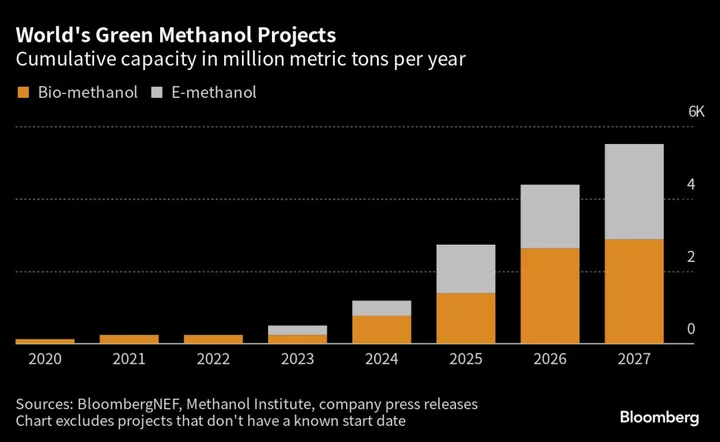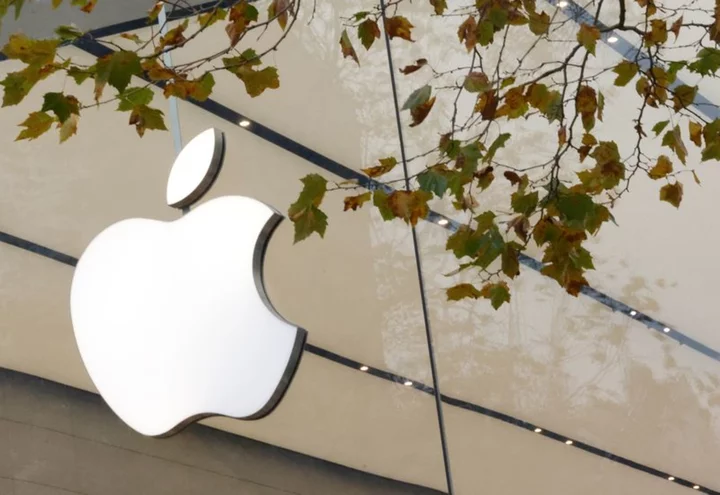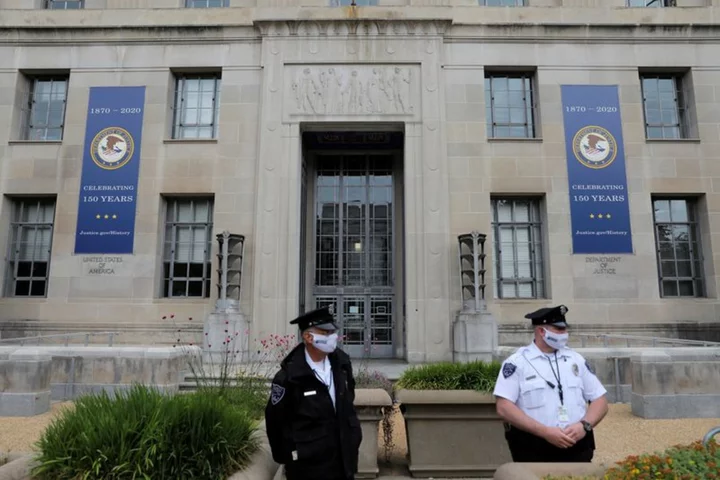
Kai Cenat weighs in on xQc and Pokimane's ongoing drama following Kick streamer's $100M deal: 'It is not cool'
Keep reading to know more about Kai Cenat's take on xQc and Pokimane's ongoing drama regarding Kick
2023-06-24 19:54

Microsoft stock hits all-time high after hiring former OpenAI CEO Sam Altman
Microsoft stock has hit a record high after hiring sacked OpenAI boss Sam Altman and other key figures from the AI firm. The US tech giant, which is a key investor in OpenAI, is the second most valuable company in the world behind Apple. The firm’s market cap on 21 November reached above $2.8 trillion – up $1 trillion since the start of the year. Microsoft chief executive Satya Nadella announced that Mr Altman, who headed ChatGPT creator OpenAI until he was ousted on Friday, would join Microsoft to lead a new advanced AI research team alongside fellow OpenAI co-founder Greg Brockman “We’re extremely excited to share the news that Sam Altman and Greg Brockman, together with colleagues, will be joining Microsoft to lead a new advanced AI research team,” Mr Nadella wrote on X, formerly Twitter. “We look forward to moving quickly to provide them with the resources needed for their success.” Despite his new role, Mr Altman is reportedly keen on returning to his former company following a revolt among OpenAI employees against the board. More than 700 OpenAI workers signed a letter threatening to quit unless the board resigns and reappoints Mr Altman as chief executive. “The process through which you terminated Sam Altman and removed Greg Brockman from the board has jeopardised all of this work and undermined our mission and company,” the open letter stated. “Your conduct has made it clear you did not have the competence to oversee OpenAI.” OpenAI board member Ilya Sutskever said on Monday that he “deeply regrets” his role in Mr Altman’s sacking, adding that he was now working to reunite the company. Following his exit from OpenAI last week, Mr Altman wrote on X: “I loved my time at OpenAI. It was transformative for me personally, and hopefully the world a little bit. Most of all I loved working with such talented people. Will have more to say about what’s next later.” After rumours emerged that he was looking to rejoin his former company after being hired by Microsoft, Mr Altman wrote: “Satya [Nadella] and my top priority remains to ensure OpenAI continues to thrive. “We are committed to fully providing continuity of operations to our partners and customers. The OpenAI/ Microsoft partnership makes this very doable.” Read More Microsoft chief hints Sam Altman may return as OpenAI staff demand board resignation OpenAI staff ‘threaten to quit over ousting of Sam Altman’ Microsoft’s new AI tool cleans up messy backgrounds in video calls
2023-11-21 18:17

Ameresco Wins Environmental Initiatives Award at The 2023 SEAL Business Sustainability Awards
FRAMINGHAM, Mass.--(BUSINESS WIRE)--May 31, 2023--
2023-06-01 03:56

Large asteroid flies close to Earth – and is only spotted days later
Earth narrowly avoided an asteroid that flew past last week – and scientists did not spot the object until it had made its visit. The object, named 2023 NT1, was spotted on 15 July by the Atlas observatory in South Africa. Astronomers there say it was up to 60 metres in size. But at that point it had already made the dangerous bit of its journey: two days earlier, it had swept past Earth, at just a quarter of a distance between us and the Moon. At 60,000 miles away, that is a long way from doing any damage, but relatively close for an asteroid. As such, the asteroid didn’t pose any danger to Earth. But it was an important reminder that truly dangerous asteroids could fly towards Earth – and that we might not spot them until they are too late. That is because many asteroids, including 2023 NT1, fly towards us from the Sun. The bright light of our star can make it difficult to see anything else, especially asteroids that are relatively small at the scale of space. The European Space Agency estimates there could be a million asteroids in the same size range of 30 to 100 metres near Earth. And 98.9 per cent of them are still undiscovered, the space agency says. It has said that shows that there needs to be an improvement in the capabilities of humanity to detect such asteroids. Some are already being worked on, such as ESA’s NEOMIR, which will orbit between the Sun and the Earth and is designed to work as an early warning system for asteroids that would otherwise avoid detection, but will not launch until 2030. The asteroid 2023 NT1, at 60 metres across, is among the largest to have come so close to Earth in recent times. At that size, it could have done significant damage: the Chelyabinsk meteoroid that injured 1,500 people and damaged buildings when it fell to Earth in 2013 was only 20 metres across, for instance. From its approach last week, scientists have been able to catalogue and predict the asteroid’s movements. That should make it possible to track and spot it next time it comes close to Earth. Read More Powerful solar flare to disrupt communications, Russians warn What to expect from India’s Chandrayaan-3 mission to Moon’s south pole India launches historic mission to Moon’s south pole
2023-07-17 23:51

Fastenal Showcased in Upcoming Webinar on Spatial Computing with iPad and Manifest in Industrial Settings
SEATTLE--(BUSINESS WIRE)--Jun 12, 2023--
2023-06-12 23:15

China's eastern Hangzhou city signs comprehensive strategic agreement with Alibaba
BEIJING/HONG KONG China's eastern Hangzhou city has signed a comprehensive strategic cooperation agreement with the e-commerce giant Alibaba
2023-06-29 21:52

Billionaire Maersk Family Forms Green Methanol Firm for Shipping
The billionaire family behind A.P. Moller-Maersk A/S is forming a new company that will produce green methanol in
2023-09-14 12:59

Lego AI: 5 easy steps to try popular filter on TikTok
TikTok users have recently been gushing about the new Lego AI Filter, which transforms you into lego toys
2023-06-04 13:57

EA FC 24 Team of the Week 1 Predictions, Release Date
EA FC 24 TOTW 1 predictions include Tariq Lamptey, Bernardo Silva, Terem Moffi, Xavi Simons, Robert Lewandowski, Richarlison and more.
2023-09-18 23:25

Apple's high-yield savings account hits over $10 billion in customer deposits
Apple’s high-yield savings account offered by its partner Goldman Sachs has reached over $10 billion in customer deposits,
2023-08-03 06:57

Who will win Logan Paul vs Dillon Danis? Tristan Tate's prediction about much-awaited match divides Internet: 'You haven’t watched him box'
Tristan Tate is convinced Dillon Danis has what it takes to take down Logan Paul, and even predicted how
2023-08-30 18:53

Pay only $111 for this refurbished 2-in-1 Lenovo Chromebook
TL;DR: As of June 26, you can get a refurbished Lenovo 2-in-1 Chromebook for just
2023-06-26 17:55
You Might Like...

Continental Develops Child-Presence Detection Technology Aimed at Reducing Child Fatalities

Are Adin Ross and IShowSpeed close? Kick streamer 'misses' recovering YouTuber while reacting to his recent livestream: 'S**t was fun'

Farewell SIM Cards: How to Add an eSIM to Your iPhone 15

Climate Protesters Block Oil Executives From London Event

Did Elon Musk challenge MrBeast? YouTuber 'goes to bed' after discussing Twitter changes with CEO, fans ask 'when is this video coming'

The Best Help Desk Software for 2023

US Justice Dept to announce 'disruptive technology' task force cases

Explainer-What happened to shut down Toyota's production in Japan?
